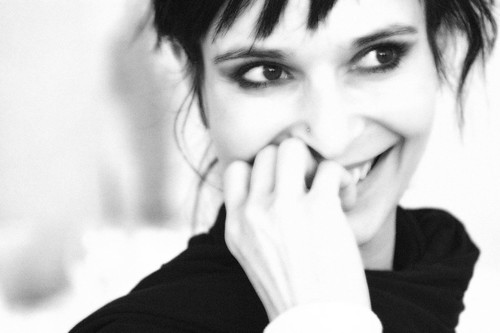Enjoying the moment
May 1, 2011productivity

When I look back on the times I’ve done the most productive work on my startup, it has always been when I’ve had a great balance of work and rest. It has also been at times when I have genuinely been enjoying the moment. Steve Jobs suggests that in order to do great work, we should love doing the work:
"Work is going to fill a large part of your life, and the only way to be truly satisfied is to do what you believe is great work, and the only way to do great work is to love what you do."
By saying “the only way to do great work is to love what you do”, Jobs implies that how good we are at something is correlated with how much we enjoy doing it. I am sure you can agree this makes sense.
Loving what we do
This need to love what we do has had me thinking for a while about how to maximise the amount of time I’m truly enjoying what I’m doing. We all have parts of our lives which we don’t enjoy, and it is easy to assume that it is inevitable that there are elements of our days which we won’t enjoy. I think that whilst this is very easy to agree with, a lot of the time it may actually be a choice, whether we realise it or not.
Last year I watched a video entitled Tea & the Art of Life Management which is a great discussion featuring two of my favourite authors Tim Ferriss and Leo Babauta. The video is fantastic and I can highly recommend it. I’ve watched it a number of times myself, and I always keep remembering it for one particular thing which Tim Ferriss said. He calls it Gratitude Training:
Lets say that you want to eat a peach for dessert one evening, but you decide to only allow yourself this luxury after washing the dishes. If, while washing the dishes, all you think of is eating the peach, what will you be thinking of when you eat the peach?
The clogged inbox, that difficult conversation youve been putting off, tomorrows to-do list?
The peach is eaten but not enjoyed, and so on we continue through life, victims of a progressively lopsided culture that values achievement over appreciation.
Ambition vs day to day happiness
The final sentence in the quote above from Tim Ferriss is something I find particularly interesting as a startup founder. As a founder, I read many articles, many videos and generally try to stay very up to date on the different techniques out there and try to learn from what has worked for others. This means that a lot of the time I am exposed to articles which show how much people have achieved such as how much a startup has been acquired for. With such a high concentration of this kind of information, it is easy to put a lot of value on ambition. We don’t start companies and aim to make no impact, do we?
However, going back to what Steve Jobs says, if we value ambition too much compared to day to day happiness, we are unlikely to ever achieve the things we are striving for. In a recent interview with David Heinemeier Hansson of 37signals on Mixergy, Andrew Warner asked David a very interesting question:
When you launch something you say “we just wanted to launch something and see where it went” and on the other hand, “we’re going to build a hundred million dollar company”. How do you balance both those sides?
David responds by saying that the ambition is much less important than day to day happiness. He says that if you care more about the milestones and ambitions, you are much less likely to achieve them.
Choose to enjoy the moments
So next time we’re washing the dishes, why not actually find enjoyment in washing the dishes? It can be a very relaxing activity. When we’re trying to reach inbox zero, why not enjoy the great conversations we are having and have some gratitude for the amazing people we are in touch with and the fact we can communicate so easily. When a customer gets in touch with a question about our product, instead of seeing it as a necessary but unenjoyable task, why not be thankful that they care enough to get in touch, and look for something we can learn from them?
I certainly need to keep reminding myself that it’s a choice.
Photo credit: Dimitris Papazimouris
